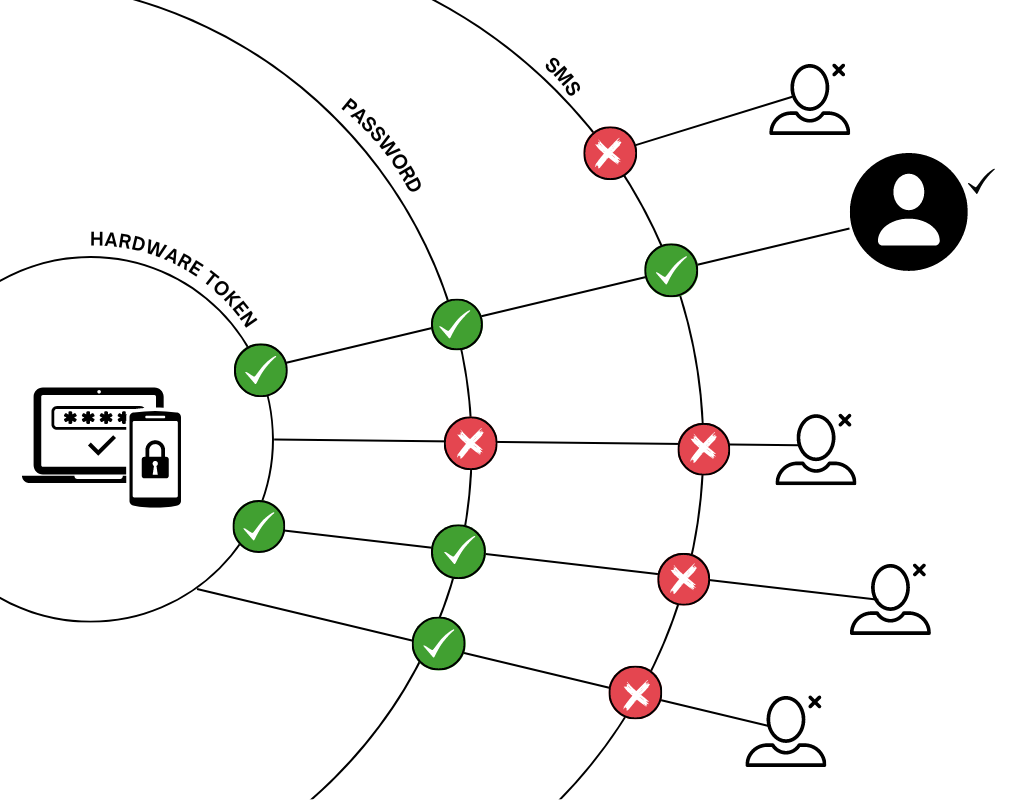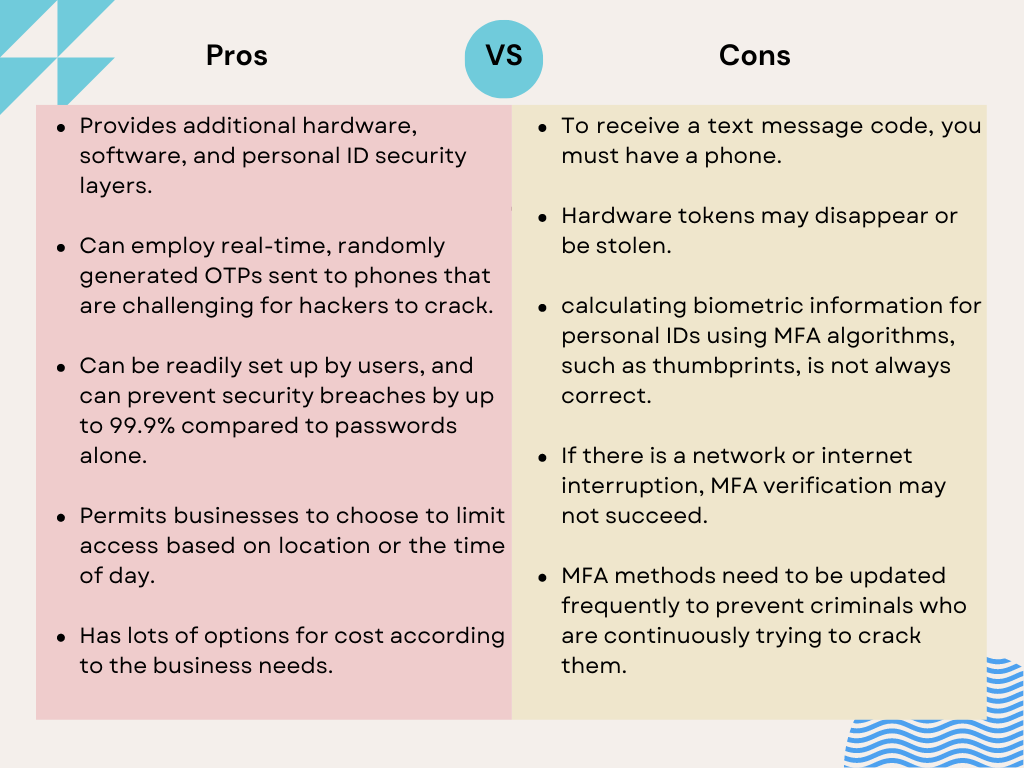Multi-factor authentication (MFA) combines two or more authenticators to confirm a user's identity during login. It is a layered technique for securing physical and logical access. MFA improves security because unauthorized users cannot pass the second authentication requirement and cannot access the targeted physical area or computer system even if one authenticator is compromised.
Why is MFA important and necessary?
The ability of adversaries to guess or gather passwords to obtain unauthorized access is growing. The sophistication of password-cracking methods is rising, and the cost of powerful computing is falling. Attackers can also get credentials by looking for passwords misused on other systems or by intercepting phishing emails. MFA offers a robust defense against account takeover, making it much more difficult for attackers.
How does Multi-Factor Authentication work?

MFA demands a method of verification that unauthorized users will not have. Passwords alone are insufficient to confirm identity. Hence MFA requires other types of identification. Two-factor authentication is the most prevalent type of MFA (2FA). Threat actors cannot pass off as a user even if they have just one piece of convincing proof. They will not be able to provide two or more.
Three Primary MFA Authentication Techniques
One of three additional types of information serves as the foundation for most MFA authentication methodologies:
Things you are aware of, such as a PIN or password.
Personal belongings you own, such as a badge or smartphone.
Things inherent in you, like voice recognition or biometrics like fingerprints.
What are the pros and cons of an MFA?

How to select the best authentication technique?
The optimum authentication technique for users will provide comfort, quickness, and assurance.
Privacy: The best authentication method should not compromise the user's privacy.
Completion Process: The authentication process should not ask users to follow too many instructions.
Security: Choose a more secure authentication method if the transaction's risk profile is high.
Usability: Simplicity and effortlessness should be the primary focus while choosing.
Conclusion
Cybersecurity is becoming increasingly important as businesses increasingly convert to digital. MFA becomes extremely useful because it provides improved and sufficient security against losing and damaging a company's sensitive data.
